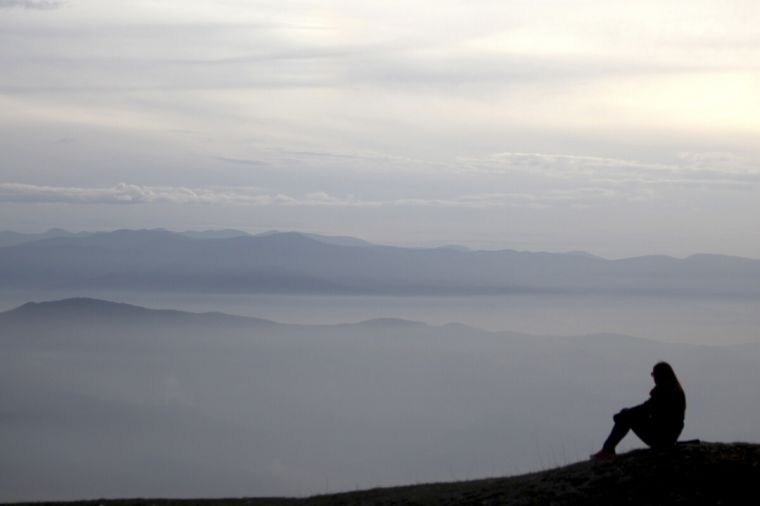Spiritual lessons from Spring Cleaning: What we can learn from this historic practice
Yesterday a friend and I celebrated 4 years of studying Psalms together – every single one in order, with Hebrew commentaries – once a week, religiously – barring festivals and holiday periods.
And the Psalms ends with a bang, not a whimper.
So out came the apricot brandy and biscuits and we had time to reminisce. My friend, Shoshana, studied Hebrew and Arabic at Oxford, obtaining a double first. Her father (who unlike many of his family, escaped Germany before the Holocaust) was Chief Rabbi of Northern Ireland.

In 1962, Shoshana was interviewed for Oxford by the novelist, Iris Murdoch. She was taught modern Hebrew literature by Isaiah Berlin (who she didn't rate much as a listener). She was also one of the first to learn modern Hebrew, with the pioneering David Patterson from Liverpool, who was spurned by all those vicars who taught biblical Hebrew and 'thought they knew it all', she said.
Modern Arabic was taught by a Welshman called Jones.
All the students of Arabic were Jews.
Last week, we reached the Hebrew month of Adar, which is full of joy and hope. On 7th Adar, Moses was born and died – having ushered in a new reality for the Jewish people after their servitude in Egypt and their crossing of the Reed Sea.
For 40 years though the children of Israel have to wander around in the desert, where they give Moses a hard time, they also learn to do something constructive.
Most of the book of Exodus concerns the construction of the Mishkan, normally translated as 'Tabernacle', but actually meaning 'indwelling'.
And last Shabbat the reading was 'Terumah', which means 'contribution'. G-d has brought the Jews out of Egypt and looked after them so far. He has given them Moses as a leader, someone who will guide them. But now they have to do their share – and 'contribute' by building a structure worthy of G-d.
Mishkan is related to the concept of Shekinah, the divine presence of G-d, which accompanies the Jews in the desert. And it is therefore no coincidence that this reading comes at a time when we also start cleaning our homes for Pesach.
I started last week, when the weather suddenly changed and became sunny – and this also coincided with the 1st day of Adar.

Each object dusted or wiped brought back memories of the past, just as Pesach reminds us of our time of enslavement and of liberation.
A children's book called Coquerico reminded me of my mother's first attempts to teach me French, aged 7. My mother was Polish, but like my father, escaped the Holocaust. The French saved my mother, and she in turn adored all things French. All this came back to me on dusting the book.
Next to Coquerico lay a paperback version of Norman Kemp Smith's translation of Kant's Critique of Pure Reason, which was used in preference to the German original when I studied philosophy at Tübingen University at the end of the 1960s.
Fast forward to the invitation to attend the address given to both Houses of Parliament by Aung San Suu Kyi on June 21, 2012. This event reminded me of the December day in 1991 when her son accepted the Nobel Peace Prize on her behalf in Oslo. Should I keep the photo of a young Aung San Suu Kyi sent me by her husband, I wondered? But I suppose this is also part of one's general history – the bad and the good.
Aung San Suu Kyi studied from 1964-67 at the same Oxford college as my friend Shoshana.
And another book pops out from the shelves: Facing Death by Rachel Boulding, Deputy Editor of the Church Times until April last year, when she died.
Rachel and I had gone through a great deal together. She had commissioned four articles, starting with Anglicans have betrayed the Jews (in 2005) and then a joint article together with the Chief Rabbi of Haifa, an appraisal of the Anglican-Jewish Commission, which was established in 2006.
Then there was the article on the threat to shechita.
And finally, an article about our Liverpool Burma Support Group, which I chaired from 1991-96 at the request of Burmese refugees living in the area. It was obvious from the outset that the Rohingya tragedy needed to be solved.
So the four objects mentioned above assisted in the work of 'remembering', which is what Pesach is all about. As you wonder around your home, you dissolve your entire past into your own little Reed Sea. You wander around a bit in a wilderness of your own making - the general untidiness of your home – parallel to the untidiness in your mind. And through re-encountering and cleansing, you come to grips with your inner self, and rebuild your life incrementally from scratch.
In Judaism, the indwelling mishkan becomes the bayit – the home which is our Temple – signifying how we order our lives. Our home can be a single room or a palace. But it is the locus for the inner work indispensable for outer activity.
The relationship with G-d is a covenant. We have an informal, unspoken agreement with G-d that that is how we recognize His continuing presence in our lives through thick and thin.
The word for covenant is 'brit', the same word as circumcision, which is actually 'brit milah', also meaning 'covenant of the mouth'. So, in Judaism, the Word is the covenant – the physical marker which binds us to G-d.
This Thursday (in the midst of our cleaning) Shoshana and I will be meeting up again to start our new cycle of learning.
This time we are going to translate two poems by the great Chaim Bialik - the poet of modern Judaism. Shoshana studied Bialik 50 years ago at Oxford University. And I need to get to grips with him in order to take forward our dialogue group of Jews and Christians, currently dealing with the period in Europe and Israel between 1904 and 1914.
Shoshana is probably one of the greatest Hebraists in the country – but even she will find this translation work a challenge after so many years. But as we go about our daily lives, we know that this work contributes to the building of the mishkan, our own inner sanctuary – repository of all our historical memories, the restructuring of which will guide us forward in the weeks and months ahead.











